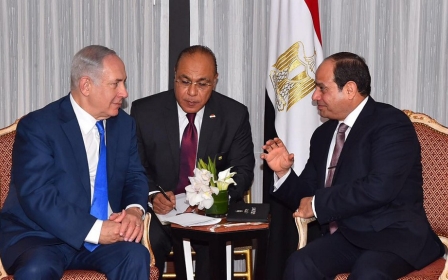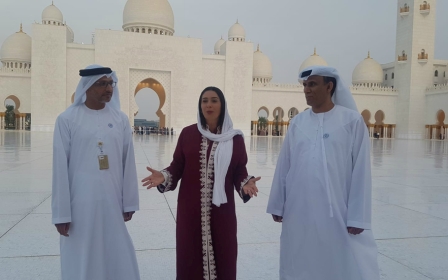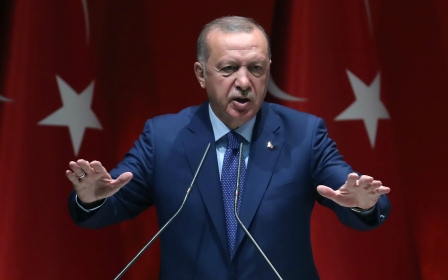Arabic press review: Top Sisi aide quietly removed from role

Sisi's office gets major shake-up
The office of Egyptian President Abdel Fattah el-Sisi has seen a dramatic shake-up, with its head, Major General Mostafa Sharif, replaced with the commander of the Republican Guard, Major General Ahmad Ali, according to London-based newspaper al-Araby al-Jadeed.
The move comes as part of Sisi's growing reliance on Republican Guard officers rather than those from the army, the paper reports.
"The ousting of Sharif came suddenly and silently, and has not been officially announced," the daily wrote, contrasting with Sharif's 2015 appointment, which was met with much fanfare.
New MEE newsletter: Jerusalem Dispatch
Sign up to get the latest insights and analysis on Israel-Palestine, alongside Turkey Unpacked and other MEE newsletters
According to al-Araby al-Jadeed, Sharif's dismissal only became clear to Egypt's leaders after his absence was noted in Sisi's last two public appearances. Previously, the officer had always been at the president's side.
Egyptian sources told the paper that Sharif has always refused to become a simple protocol officer with limited powers, which has sparked disagreements between him and other officials within the ruling establishment.
However, sources also said that apart from these disagreements, Sharif's departure might be purely for health reasons, as at the beginning of this year he suffered from an illness that had kept him out of work for several weeks.
Middle East Eye has contacted the Egyptian embassy for comment.
Israel touts tourist in Saudi Arabia
In an attempt to publicise the growing ties between Israel and Gulf Arab states, the Israeli foreign ministry tweeted photos it said were of a Jewish tourist visiting Saudi Arabia.
“A Jewish tourist recently visited Saudi Arabia and was warmly welcomed by the Saudi people,” the ministry wrote on its Arabic Twitter page.
Saudi Arabia, the United Arab Emirates, Bahrain and Oman have no formal ties with Israel and do not officially recognise the state. However, in recent years they have been moving closer, often citing Iran as a shared threat.
In one photo the tourist is seen wearing Saudi traditional clothes and in another he poses in front of the Kingdom Tower, one of Riyadh’s landmarks.
In another post, Israel in Arabic retweeted a video posted by Mohammed Saud, a Saudi man who frequently posts pro-Israel tweets, receiving the tourist in his home.
“There is no doubt that this is the result of breaking the barriers of mistrust that have been built for decades,” the caption read.
One million Syrian refugees return
More than one million Syrian refugees have returned to their country, pro-government paper al-Watan reported a minister as saying.
"The return of one million Syrians to the country is a continuation of the message of victory by the Syrian army against terrorism and the Syrian state’s sincere tendency to repatriate its people from abroad," Minister of Local Administration and Environment Hussein Makhlouf said.
More than six million Syrians have fled their country since the war erupted in 2011. In the eight years since, President Bashar al-Assad's forces have regained control of much of the country, while around half a million are thought to have been killed.
Makhlouf said returnees are provided assistance on return. However many refugees are fearful of returning to Assad-held areas and under the control of the much-feared security forces and militias there.
Al-Watan quoted an official source in the Immigration and Passport Department as saying that more than 1,400 Syrians have been repatriated during the past two days, noting that most of the returnees since the beginning of this year are from refugee camps, particularly those in Lebanon.
Middle East Eye delivers independent and unrivalled coverage and analysis of the Middle East, North Africa and beyond. To learn more about republishing this content and the associated fees, please fill out this form. More about MEE can be found here.




